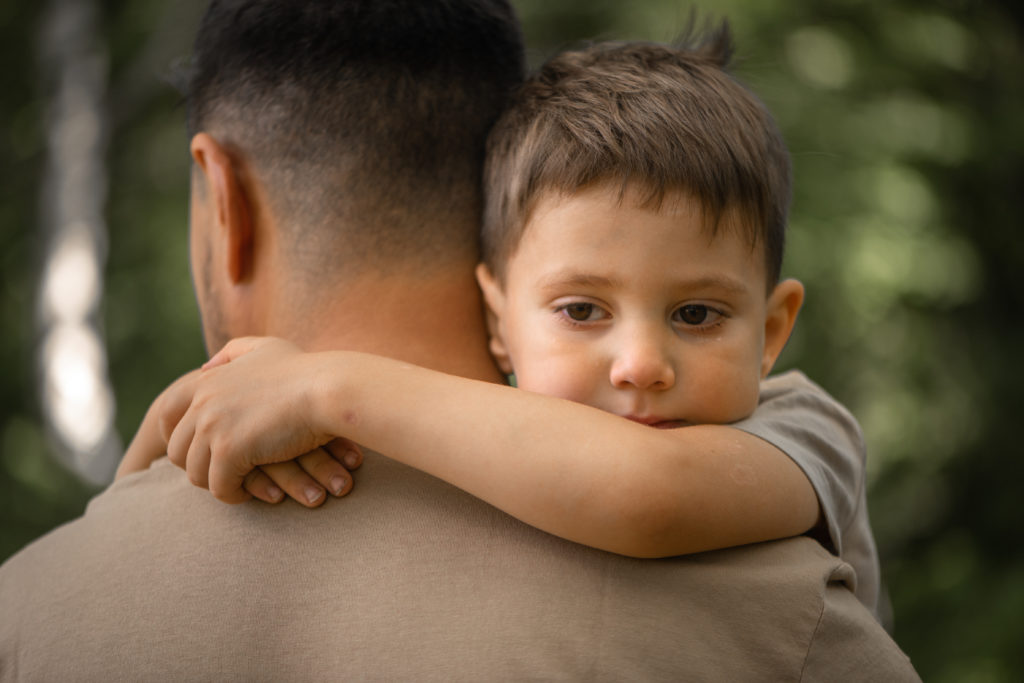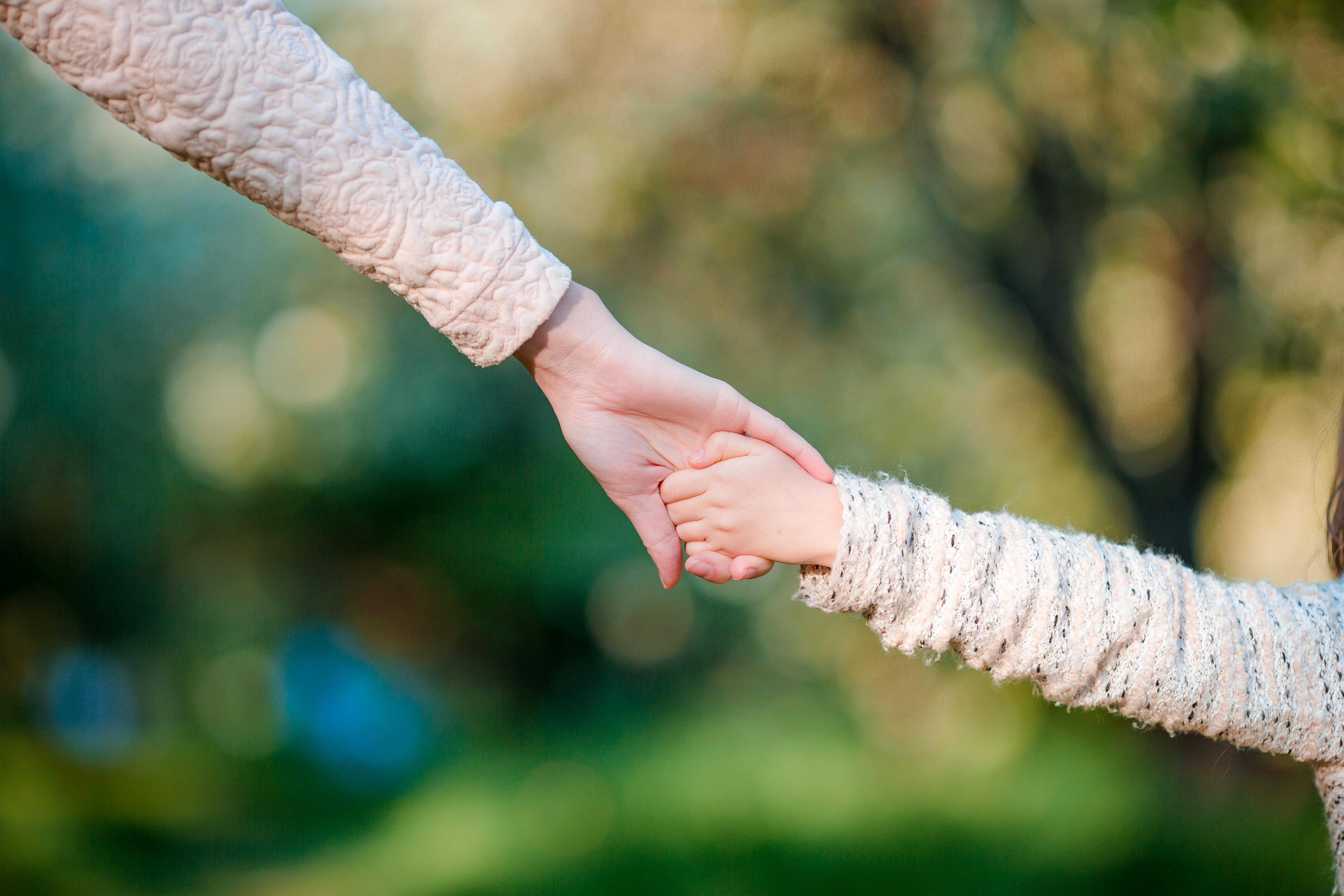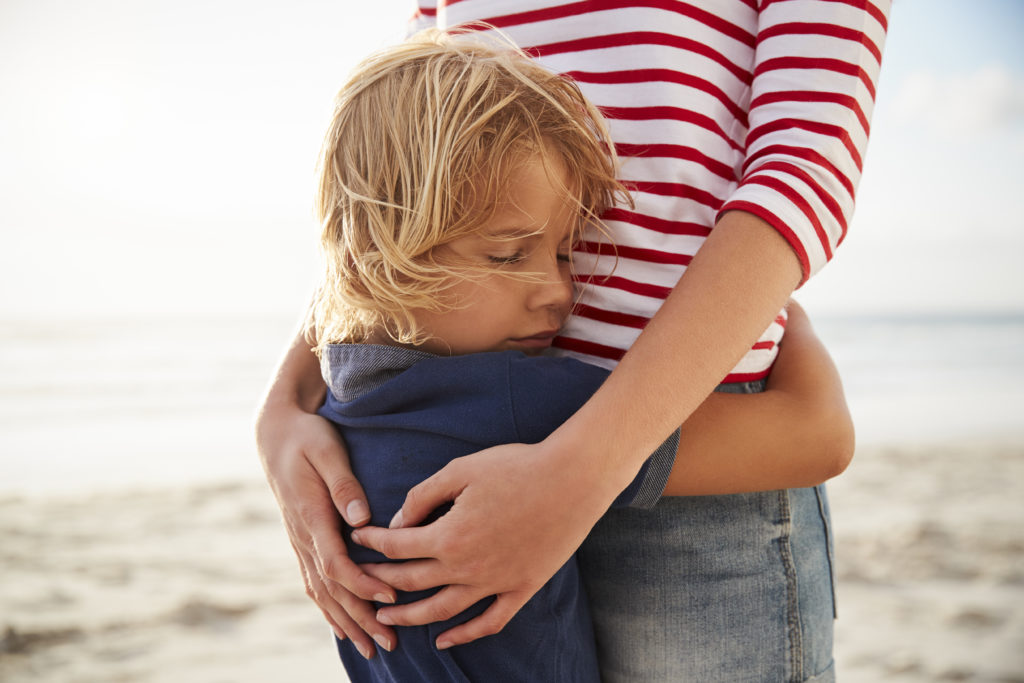The Grief Experience
 While society has long held that the grief process should be short lived and is a life experience that we all must contend with, however, few among us are given the tools and skills necessary to deal with the grief issues that we experience in our lifetime.
While society has long held that the grief process should be short lived and is a life experience that we all must contend with, however, few among us are given the tools and skills necessary to deal with the grief issues that we experience in our lifetime.
Research demonstrates that the grief experience in children is unique to that of adults and unattended may lead to and underlie greater mental health issues later in life. The child suffering the loss of a loved one experiences a wide range of emotions including; fear, guilt, pain, loneliness, abandonment, sadness and insecurity. Unresolved grief may lead to debilitating physical symptoms such as headaches, stomachaches, anxiety attacks, and insomnia. These symptoms and others including behavioral problems in school and at home, eating disorders, suicide, violent behavior and even substance abuse are not always easily identified and may emerge many months or even years following the loss.
Helping Children Feel Safe Following the Death of a Loved One
Children are sometimes fearful following the death of a parent or sibling. Providing boundaries helps children feel safe during difficult times. Children also want questions answered honestly, yet not frightening them in the process. Here are some suggestions.

- Your calmness is essential. Children can “read” an adult’s fear and concern. Remaining calm and not creating panic is vitally important to your child’s emotional well being. Children will mirror their parent’s behavior.
- Keep things as routine as possible and maintain structure in your family. That will help your child feel safe. Things like eating dinner together, a bedtime story and playing with your children can help them feel safe.
- Following the death of a parent or other loved one, children can be further frightened with the news of the day or events out of their control. Limit their TV watching to programs that provide a sense of calmness. Scary movies and programs increase their fear.
- Your child may become clingy. Reassure your child’s sense of security by being consistent in picking them up when you say that you will.
- If your child expresses fear that something will happen to you too, tell them that you are doing everything possible to secure your safety and theirs. Name all those persons in your child’s life that care about them and are there in case you were not able to care for them. This provides for a stronger sense of security.
- If their father or mother is in the military and is deployed to a dangerous part of the world, your child may want to know if they will be killed in war. Here is an answer that is truthful yet not frightening. . .”your mom and/or dad have been well trained and they will do the best they can to come home safely.
- Crying is okay. Totally “losing it” is not! It is okay for our children to see that we too feel sad when we experience the death of a loved one. Remember that you are the role model for your child. Your child will respond the way that you do.
- Refrain from using words of hatred in front of your child. This only breeds more hatred. Have those adult conversations with adults, not in front of the children.
- Be consistent with your discipline. It is easy to say “you don’t have to do your homework” or “you can do whatever you want” because you are sad or scared. You will only create more fear as your child realizes that you are not in charge. Yelling at your child is not helpful either as it creates a heightened sense of anxiety.
- Additional deaths can have an overwhelming effect on you and your child. Take care of the adult in you. Listen to soothing music, go for a walk or do something that is relaxing.
- Encourage your children to write or draw any feelings that they are experiencing. What a great way for them to express themselves.
- Play with your child. Go to the park on a nice day and fly a kite. This ties their emotional, physical and behavioral well- being and strengthens your family.
- Pray together. Families with spiritual roots are emotionally stronger and fare better than those without spiritual support.
- Remember to tell your children that they are loved. Children feel more reassured when they are told they too are loved.
- Preschool children are not able to express their feelings with words. Their behavior is their indicator. Give them lots of hugs while reassuring them that you are there to take care of them.
- Younger children need more play time to express their feelings. They do this by running, jumping and “play-acting” their emotions.
- Your child may have difficulty sleeping. Leave a light on or read a story that feels safe and reassuring.
- Help your child do something nice for someone. They will feel like they are helping someone else and that always feels good.
Restoring Balance
 Children who are grieving yearn for the days when things were “normal.” They want their lives back to when they were playing baseball, dance lessons or whatever their activities included. Frequently, following the loss of a parent or other loved one, those activities have stopped. They no longer participate in the things that made them happy or helped them feel successful. We encourage surviving parents, grandparents or guardians to help restore their children’s sense of balance and normalcy.
Children who are grieving yearn for the days when things were “normal.” They want their lives back to when they were playing baseball, dance lessons or whatever their activities included. Frequently, following the loss of a parent or other loved one, those activities have stopped. They no longer participate in the things that made them happy or helped them feel successful. We encourage surviving parents, grandparents or guardians to help restore their children’s sense of balance and normalcy.
One thing that children say to us frequently is, “I don’t laugh anymore. I feel guilty if I do.” What we want children to know is that it is okay to laugh and it’s okay to resume or be in activities that help them feel good. I like to say, “Wouldn’t your loved one want you to be happy?” It’s part of “moving forward” and being healthy and yes, it’s okay to laugh.
 While society has long held that the grief process should be short lived and is a life experience that we all must contend with, however, few among us are given the tools and skills necessary to deal with the grief issues that we experience in our lifetime.
While society has long held that the grief process should be short lived and is a life experience that we all must contend with, however, few among us are given the tools and skills necessary to deal with the grief issues that we experience in our lifetime.


 Children who are grieving yearn for the days when things were “normal.” They want their lives back to when they were playing baseball, dance lessons or whatever their activities included. Frequently, following the loss of a parent or other loved one, those activities have stopped. They no longer participate in the things that made them happy or helped them feel successful. We encourage surviving parents, grandparents or guardians to help restore their children’s sense of balance and normalcy.
Children who are grieving yearn for the days when things were “normal.” They want their lives back to when they were playing baseball, dance lessons or whatever their activities included. Frequently, following the loss of a parent or other loved one, those activities have stopped. They no longer participate in the things that made them happy or helped them feel successful. We encourage surviving parents, grandparents or guardians to help restore their children’s sense of balance and normalcy.